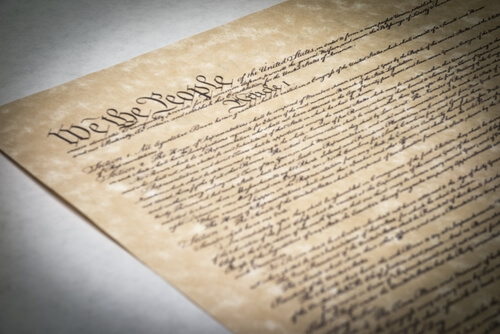Ricochet is the best place on the internet to discuss the issues of the day, either through commenting on posts or writing your own for our active and dynamic community in a fully moderated environment. In addition, the Ricochet Audio Network offers over 50 original podcasts with new episodes released every day.
 Amend, Don’t Bend
Amend, Don’t Bend
 Earlier this week, Instapundit Glenn Reynolds made some waves by arguing that a Congressional bill that would ban abortion after 20 weeks is unconstitutional:
Earlier this week, Instapundit Glenn Reynolds made some waves by arguing that a Congressional bill that would ban abortion after 20 weeks is unconstitutional:
The problem is that Congress is supposed to exercise only the powers enumerated in the Constitution, and those powers don’t include regulating state medical procedures. (The federal government lacks even the power to criminalize murder as such: All federal “murder” statutes punish murdering someone in the course of violating some other federal law because unlike states, the federal government has no general “police power.”)… If you scroll through the powers enumerated to Congress in Article I, Section 8 of the Constitution, you’ll find such things as establishing uniform rules of bankruptcy, raising and supporting armies and navies, and establishing post offices and post roads. What you won’t find is anything that supports congressional power to impose a time limit on abortion.
Both NR’s Ramesh Ponnuru and The Federalist’s Ben Domenech counter, arguing that the ban correctly cites the Equal Protection Clause of the 14th Amendment as the main source of its authorization. In part, Ponnuru argues:
The text of the [14th] amendment says “all persons,” does not define persons, and commits enforcement to Congress. If members of Congress have used their reason to determine that unborn children are, in truth, persons, the text seems to open the door for them to treat them as such for equal-protection purposes.
While I applaud the effort, this still strikes me as trying to read the text as saying something it clearly does not, as the full sentence reads to “All persons born or naturalized in the United States, and subject to the jurisdiction thereof, are citizens of the United States and of the State wherein they reside.” Unless you wish to argue that “born or naturalized” mean something other than their plain meaning, this seems like a stretch too far.
That the meaning of the Constitution is being stretched to make an argument is neither surprising nor necessarily alarming: as a future Vice President who knew a great deal about the legal profession once put it, “Law is whatever is boldly asserted and plausibly maintained.” In a legal dispute, both sides are entrusted with making the strongest plausible argument for their client and then letting the judge and/or jury decide what to do with it.
But when there is genuine and substantive ambiguity over a serious issue that’s more than a once-off, the proper remedy should be to seek to clarify the law, rather than stretch or contort it to mean what we want it to say, however logically or historically defensible the revision might be. If there aren’t enough suppositions to get to a good outcome, add some, either by amending legislation or, in rare cases, the Constitution. Besides avoiding the problem of having an unelected judiciary attempt to solve a genuinely unclear and controversial matter (as we saw in Roe and are likely to see again with same-sex marriage), this reduces the risks of snowballing silliness as one just-barely-plausible argument is later used to justify things no one would have expected (see, again, abortion and SSM).
The best model is the 19th Amendment, which explicitly overturned the male-only provisions of the Constitution (ironically, contained in the 14th Amendment) rather than try to finesse an interpretation that arrived at the right answer. That these kinds of controversies — from abortion, to marriage, to 4th Amendment issues — have persisted with so little serious effort put into clarifying things does not bode well for us.
Update: Ramesh responds correctly pointing out — as a number of members did — that the 1st section references “person” multiple times and that I quoted from the wrong one and I concede the point. Regardless, I’d still strongly prefer constitutional clarification on the matter (as pointed out by member Sal Padula), as fetuses generally weren’t considered persons at either the time of the Founding or the ratification of the 14th Amendment.
Published in General, Law



What about the ones I mentioned? I could name a few more if you like, but I have to go for now.
Michael- The most recent of the cases you cited is 130 years old. Do you really think that the courts, and not the democratically elected branches of government have been responsible for the dramatic and unprecedented unconstitutionality which has characterized American government over the last century? I’m not saying that the courts are perfect. I just think that the claim that the courts, and not the people, are the primary threat to the Constitution requires a willful disregard of the last hundred-plus years.
The Child Labor cases were not overturned until 1941. Aside from the abortion cases, which are huge, there was also the issue of forced busing not that long ago. The issue of busing provoked some very sharp anger -not all of it, or even most of it necessarily due to racism. During the 1970’s (1980’s maybe?) there were instances where courts actually ordered various city councils and other elected bodies to pass laws the courts deemed necessary -holding elected officials in contempt if they voted against them. They backtracked when they found that the public reacted strongly against that practice. Let me get back to you on that, I am sure of my memory, but would like to give you some citations.